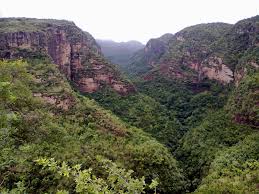“Gondwana and the Politics of Primitivism,” (South Asia Colloquium)
“Gondwana and the Politics of Primitivism,” (South Asia Colloquium)
This paper argues that primitivism, identified simultaneously in human and natural landscapes, was a key theme of nineteenth-century colonialism. It analyses the multiple historical tropes of Gondwana, the densely forested hills and ravines of Central India, where ethnological studies among tribes and the geological studies of the oldest rock formations of the Indian subcontinent shaped ideas of Indian ethnological aboriginality and geological primitivism simultaneously. Gondwana was also vital to British imperialism for its coal and cotton.Through a history of Gondwana, the landscape, its geological and anthropological evolution and its social history, this paper identifies the colonial conquest of time; appropriating India’s remote antiquity to the colonial present. The sciences of geology, archaeology, anthropology and history aligned the aboriginal in Indian culture to the nineteenth-century quest to locate a proto-Indian-ness that found affinity with the British colonising mission in both its metaphysical and material domains. Primitivism became a mode of colonisation in this simultaneous imagination and conquest of landscape.
Admission: Free
